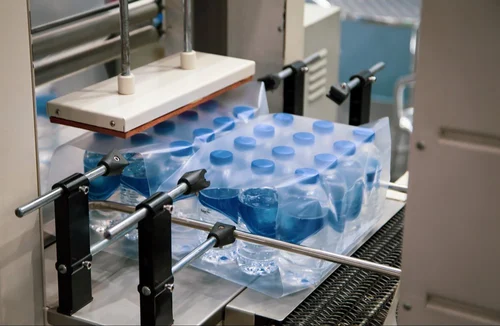
In Australia, it is legal to perform drug and alcohol testing in the workplace. However, you must have a drug and alcohol policy in place before implementing a drug free workplace programme.
How often you test and what you test for will be clarified in this policy. Hence, all employees must be aware of the specific terms of your policy as well as what type of tests they will be asked to undergo.
Why Implementing a Drug and Alcohol Policy is Essential
The ramifications of drug and alcohol abuse extend far beyond individual health concerns; they pose significant risks to both employers and employees alike.
From increased rates of injuries and absenteeism to diminished productivity and morale, the consequences of substance abuse in the workplace are numerous. Left unchecked, these issues can spiral into legal liabilities, discrimination claims, and profound disruptions to workflow.
Moreover, the impact of substance abuse extends beyond the immediate user. Colleagues may find themselves facing heightened risks due to compromised work performance or having to navigate uncomfortable situations like reporting a friend’s substance misuse.
Shockingly, it’s often innocent bystanders who bear the brunt of workplace accidents caused by impaired individuals.
In Australia, the economic toll of substance abuse in workplaces is staggering, amounting to an estimated $6 billion in lost productivity annually.1 The physical and cognitive impairments associated with substance use further compound these risks, from diminished focus and irritability to compromised decision-making and increased fatigue.
These effects range from impaired job performance and accidents to the need for extra work hours and unplanned absences.
Hence, both employers and employees are thus obligated, both ethically and legally, to ensure workplace safety by implementing and rigorously enforcing a robust drug free workplace program.
Establishing the Guidelines for Your Drug Free Workplace Program
Creating a comprehensive drug free workplace program is important for ensuring legal compliance and fostering a safe workplace environment. It’s essential for conducting workplace testing effectively.
Additionally, crafting the policy to suit your industry’s needs involves determining factors such as:
- The frequency and timing of testing
- Whether it will be randomised or scheduled
- The testing methods employed
- And the protocol for handling non-negative results confirmed by a laboratory
By listing these guidelines clearly, you empower your employees with a thorough understanding of their responsibilities and obligations, thereby promoting compliance with testing procedures.
When You Should Drug Test Your Employees
1. Acting on Reasonable Suspicion
When there is justifiable suspicion of alcohol or drug impairment among employees, employers have the right to request drug or alcohol tests. Depending on the workplace policy, urine or saliva tests, or both, may be administered.
2. Pre-Employment Drug Testing
Safeguarding your workforce begins with hiring individuals who are free from drug and alcohol dependency. Therefore, implementing pre-employment drug testing, especially in high-risk sectors, serves to protect both the organisation and its employees.
3. Mandatory Workplace Drug Testing
Certain sectors, such as aviation, transportation, and construction, are legally mandated to conduct drug and alcohol testing to uphold safety standards. Regulations stipulate that individuals working in industries such as mining, road transport, civil aviation, and railways must consent to testing as per industry and employer policies.
Here are some effective drug screening methods used in workplace drug testing:
While urine testing is commonly used by employers to screen for drug and alcohol usage, alternative methods can also be effective. Saliva swabs offer a less intrusive and quicker alternative, ideal for determining an employee’s fitness for duty during their shift.
Also, workplace alcohol breathalysers provide rapid detection of alcohol levels, offering a simple and precise testing method for your drug free workplace program.
Ensuring Effective Workplace Drug Testing
Here are essential steps to protect your business and employees:
1. Establish a Comprehensive Drug and Alcohol Policy
It’s imperative for all employers to develop a comprehensive drug and alcohol policy and procedure. This not only strengthens your stance in managing drug and alcohol-related incidents but also fosters a safer work environment.
Additionally, including prevention, counselling, education, training, and rehabilitation within your drug free workplace program is essential. As the employer, it’s your responsibility to enforce the policy effectively, going beyond mere documentation.
2. Implement Safeguards in Your Policy
When implementing alcohol and drug testing policies, it’s important to include safeguards to maintain fairness and procedural integrity. These safeguards may include protocols such as confirming positive test results.
Providing avenues for treatment or rehabilitation, along with implementing progressive sanctions for repeat positive tests, ensures a balanced approach. Also, establishing dispute resolution mechanisms and ensuring policy revisions promote transparency and fairness.
3. Understanding the Limits of Testing
While employers have a legitimate interest in safeguarding workplace health and safety, the imposition of random testing must be justified within legal and ethical bounds. Random testing is generally considered an intrusion on individual privacy and should only be implemented based on health and safety concerns, as well as according to your company policy.
4. Addressing Employee Compliance
Contracts of employment that reference company policies, including drug testing requirements, empower employers to enforce compliance. Refusal to undergo testing could be construed as a violation of a lawful and reasonable directive, potentially warranting disciplinary action, including dismissal.
Clear communication and adherence to established policies ensure accountability and uphold workplace standards.
By proactively addressing these considerations, employers can establish a comprehensive approach to workplace drug testing. One that prioritises safety, fairness, and legal compliance while safeguarding both business interests and employee well-being.
Certified and Reliable Drug Tests for Your Drug Free Workplace Programme
Australia Drug Testing is a leading provider of drug testing services Australia, offering cutting-edge drug testing kits designed to effectively detect drugs and ensure compliance with Australian drug testing standards. Their drug testing service Australia is trusted by businesses across various industries to maintain a safe and drug-free workplace environment.
They offer a comprehensive range of drug testing kits specially designed to provide accurate and reliable results, enabling employers to promptly identify and address any potential drug-related issues among employees. With their drug testing service Australia, businesses can confidently uphold workplace safety protocols while complying with Australian regulations governing drug testing.
Employers rely on Australia Drug Testing to deliver high-quality drug testing solutions that meet the stringent standards set forth by Australian authorities. Whether you are a small business or a large corporation, their commitment to excellence in drug testing service Australia ensures that your businesses can effectively safeguard your workplace environments against the risks associated with substance abuse.
Conclusion
A robust workplace drug and alcohol policy is essential for employers to ensure compliance with legislation, as well as effectively execute drug free workplace programs. How often you test your employees for drugs will depend on your drug policy, work industry, and other factors such as pre-employment screening and reasonable suspicion.
Australia Drug Testing provides verified, high-quality drug testing kits to help you effectively test for drugs and mitigate related health and safety risks within your work environment.




